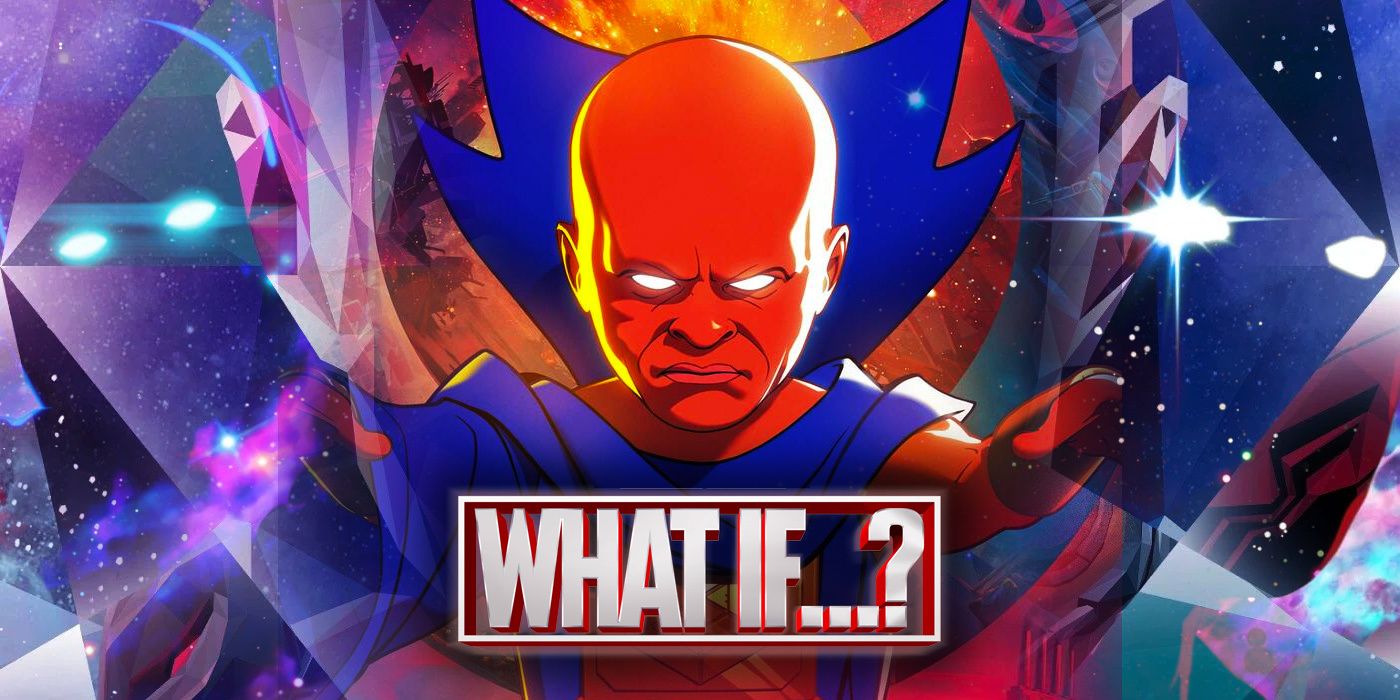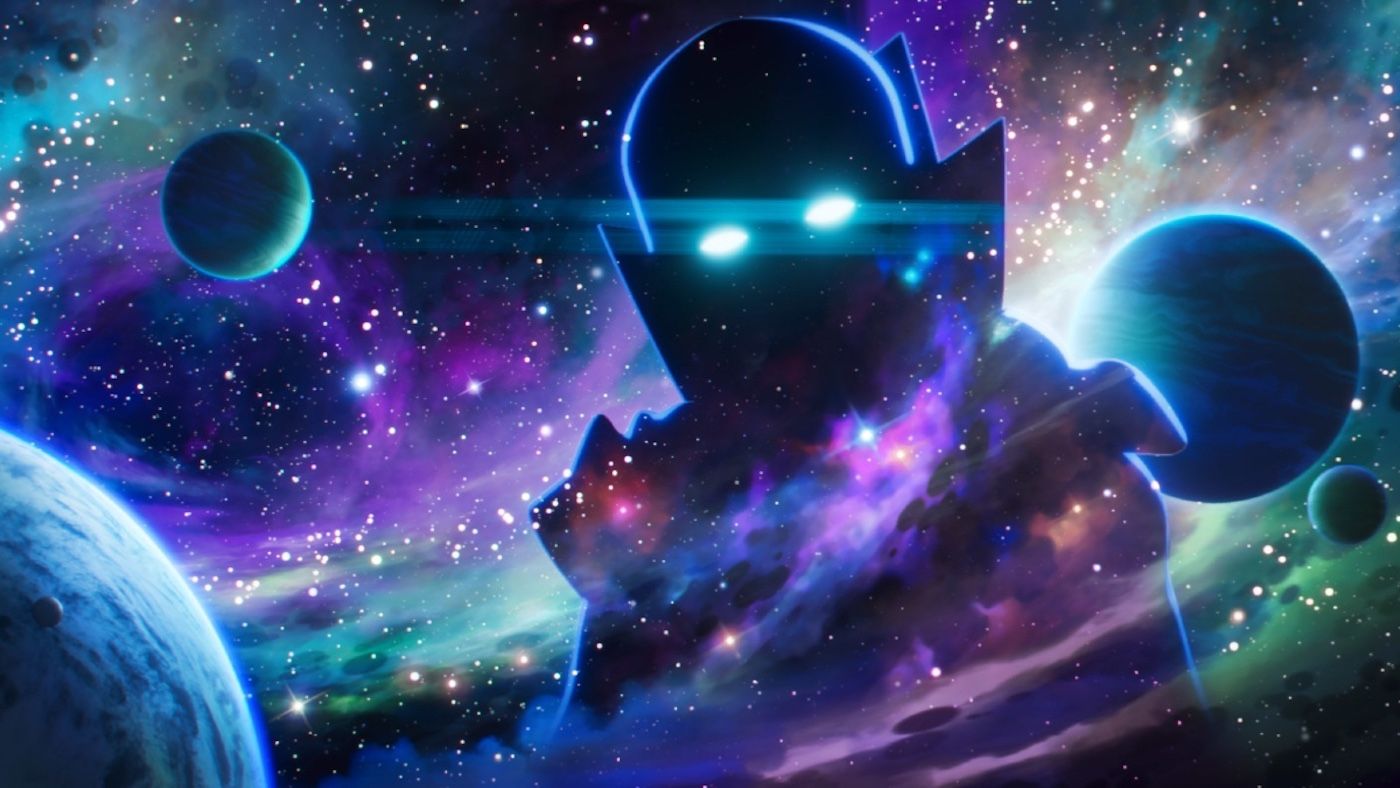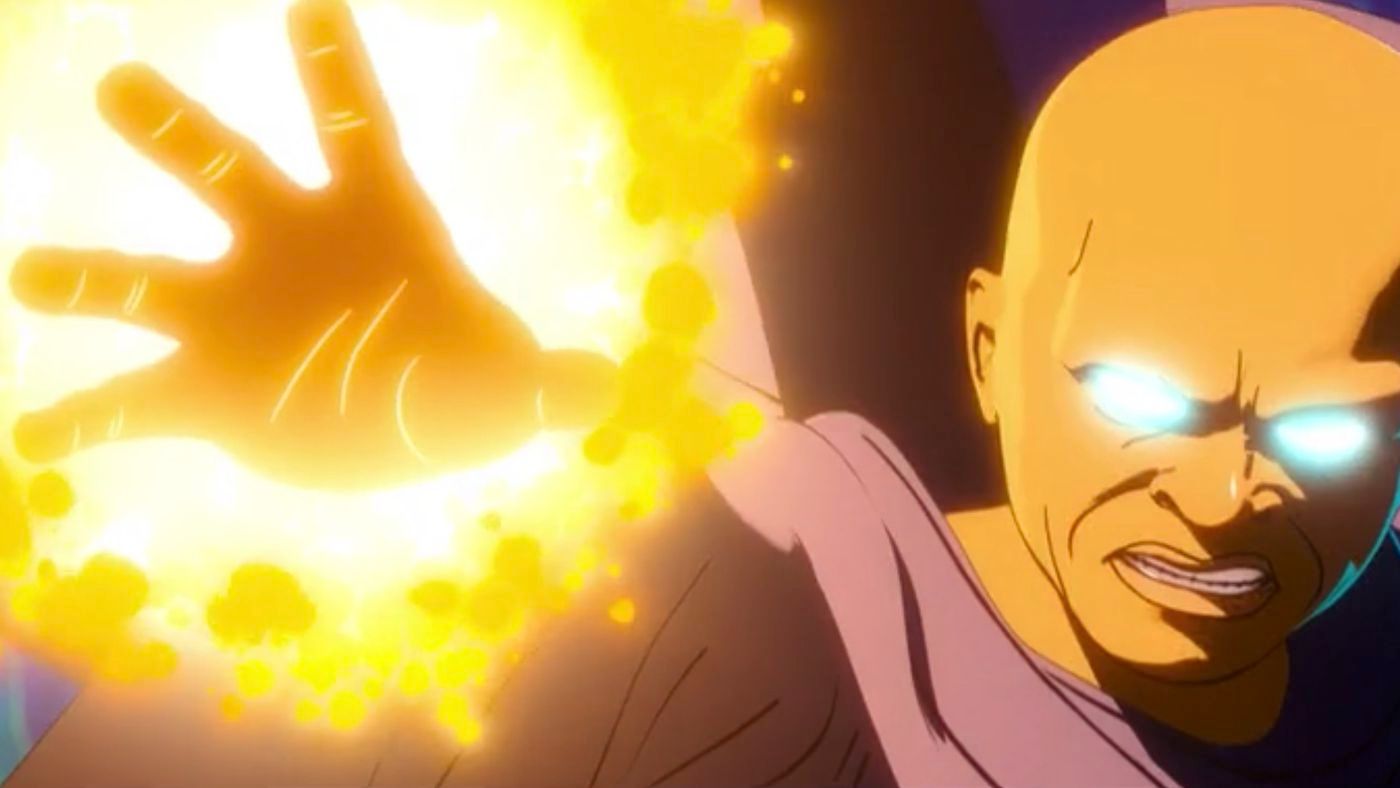Marvel’s What If…? centers around telling alternate stories of several heroes and villains all from the eye of one figure: The Watcher. The Watcher (Jeffrey Wright) introduces every episode with the same speech about time and appears in the background during the episode commenting on the day’s events. For the most part, The Watcher sits back and does not interfere with the events, claiming that he is following his oath. However, he engages more with his environment as the story goes on, putting into question his actual involvement with the characters. This culminates in the final episode, which shows The Watcher not just as a spectator, but as someone actively engaging with these different stories, becoming a surrogate for the audience.
Creator and head writer A.C. Bradley compared The Watcher to the people who filmed the viral video Pizza Rat in a press release. “We’re all The Watcher – cheering this rat on, finding it hysterically funny. But we’re not going to get close to this rat or bring him home -- it’s a rat.” Essentially, Bradley sees The Watcher as a God-like figure who is both “disgusted” by humanity and the infinite realities, but also “fascinated.” Being above these humans allows him to not feel too connected with humankind and all alien life forms, but he still enjoys how each timeline and world progresses.
That may be so at the start of the series. The Watcher is barely present during the first three stories, and we hardly see his face. He does not make much of a mark aside from being a narrator until the Doctor Strange (Benedict Cumberbatch) episode. He says that he could warn Strange about his actions but decides not to because “the fate of his universe is not worth risking the safety of all others. Besides, I doubt he’d listen.” Strange even acknowledges The Watcher’s presence by calling out "Hello? Who's there?". Later on, Strange begs The Watcher to help, calling him a “god” and arguing that his world should not pay for his arrogance. The Watcher refuses to help, claiming that he is not a god and that “meddling with time and events only leads to more destruction.” These moments suggest that The Watcher cares more for the larger picture than individual worlds themselves, but also that he has some empathy. He did consider stopping Strange but chose to let time proceed to protect other universes. He certainly has a god-like quality in that he believes his mission to watch and not interfere is more important than just saving lives, like the person taping the Pizza Rat video. Also, his indifference towards Strange’s plight serves also as him wanting the Doctor to atone for his mistake with the ultimate price.
That stance changes towards the end of the series when Ultron (Ross Marquand) tries to tear apart the multiverse. The Watcher breaks out into a panic when he realizes that the cyborg is aware of his presence and tries to “bring peace” to all infinite worlds. He nervously watches as Hawkeye (Jeremy Renner) and Black Widow (Lake Bell) search for the right folder with the location of Armin Zola’s (Toby Jones) AI. He debates if he should intervene and gets disturbingly frustrated when Clint gives up, confoundingly muttering, “Get up, come on. You’re human. You keep hope against the worst of odds.” This is the first moment where The Watcher is so invested in the lives of the stories he has told to this point that he actually gasps, with a fantastic delivery from Wright. He finally feels an imminent threat from Ultron’s presence in the same way that the figures in these universes deal with imminent danger on the regular. His fear of his own demise forces him to break his oath and bring together the Guardians of the Multiverse.
Here, he toes the line again. The Watcher allows the Guardians to struggle against Ultron and watches as Killmonger (Michael B. Jordan) betrays the Guardians to steal the Infinity Stones. That all falls within his plans, as Strange seals Killmonger and Zola in a pocket dimension as they fight over the stones. This shows him coldly plotting and bringing different heroes from other universes to fight his battle for him as he watches from the sidelines. On the other hand, he is not just pointing a camera/cell phone at a rat here. He did confirm to Strange his plans and cordially thanked him for his “sacrifice” when he tells Strange that he needs to watch their pocket dimension. Afterwards, The Watcher has a conversation with a disenfranchised version of Black Widow. She calls him out for never interfering with their affairs, saying “We’re just stories to you. We’re not real. You watch us fight, win, lose. Tell me, did you make popcorn while Ultron murdered my friends and burned my world to the ground?” These comments resemble Bradley’s statement about The Watcher, as a heavenly figure who watches the dumpster fire that is the multiverse.
The Watcher’s response to Natasha is fascinating. He says that their stories “are everything to me” and, while he does not fix her universe, he does make the effort to place Black Widow into the timeline where the original Avengers died at the hands of Hank Pym (Michael Douglas). He closes the episode by discussing how everyone is searching for belonging and home within the multiverse. He closes the season saying that “The multiverse, every single world, every story is my home, and I will protect it to the end” as he fades into the cosmos. This suggests that The Watcher has more of an affinity for the MCU than previously mentioned. He may have limits to how much he is willing to change, but he does, in some respects, care for the people’s lives and stories that he is watching.
On the other hand, maybe The Watcher believes that he is still above the individual people in the multiverses. That he just wants them alive to watch his shows and film his rat dragging pizza. That may be, but he goes one step further calling all their stories his “home.” That level of intimacy that The Watcher has gained from interacting with Doctor Strange and The Guardians suggests that The Watcher has a further level of connection. He serves less as a person with a camera reacting to an event, but more as a historian recalling their favorite moments across the cosmos, or a filmmaker working on their passion project.
This makes sense, as What If…? is one of the first projects in the MCU to explore fully the dark and weird world that exists across decades of comics. These stories have raised generations of family, as the multiverse has shaped The Watcher’s existence. He may not care about every story as much as another, but The Watcher does have a deep appreciation for these heroes because he shares their joys and sorrows. That helps define The Watcher’s role as more than just a narrator. He is one of us, a viewer and a creator who has loved these stories and will do anything to protect their sanctity.



